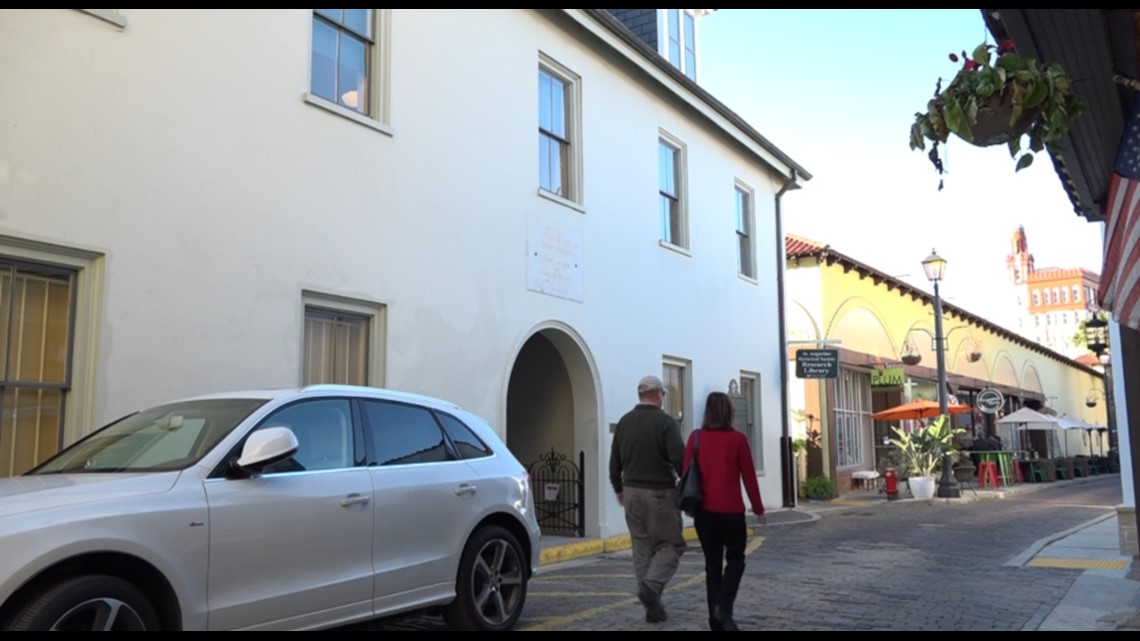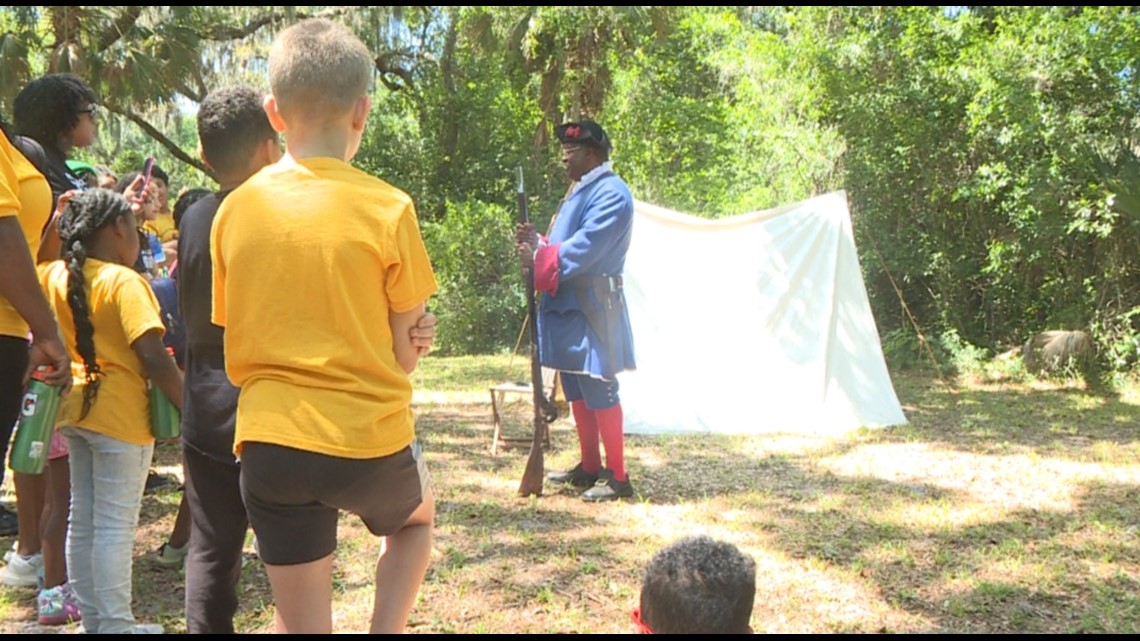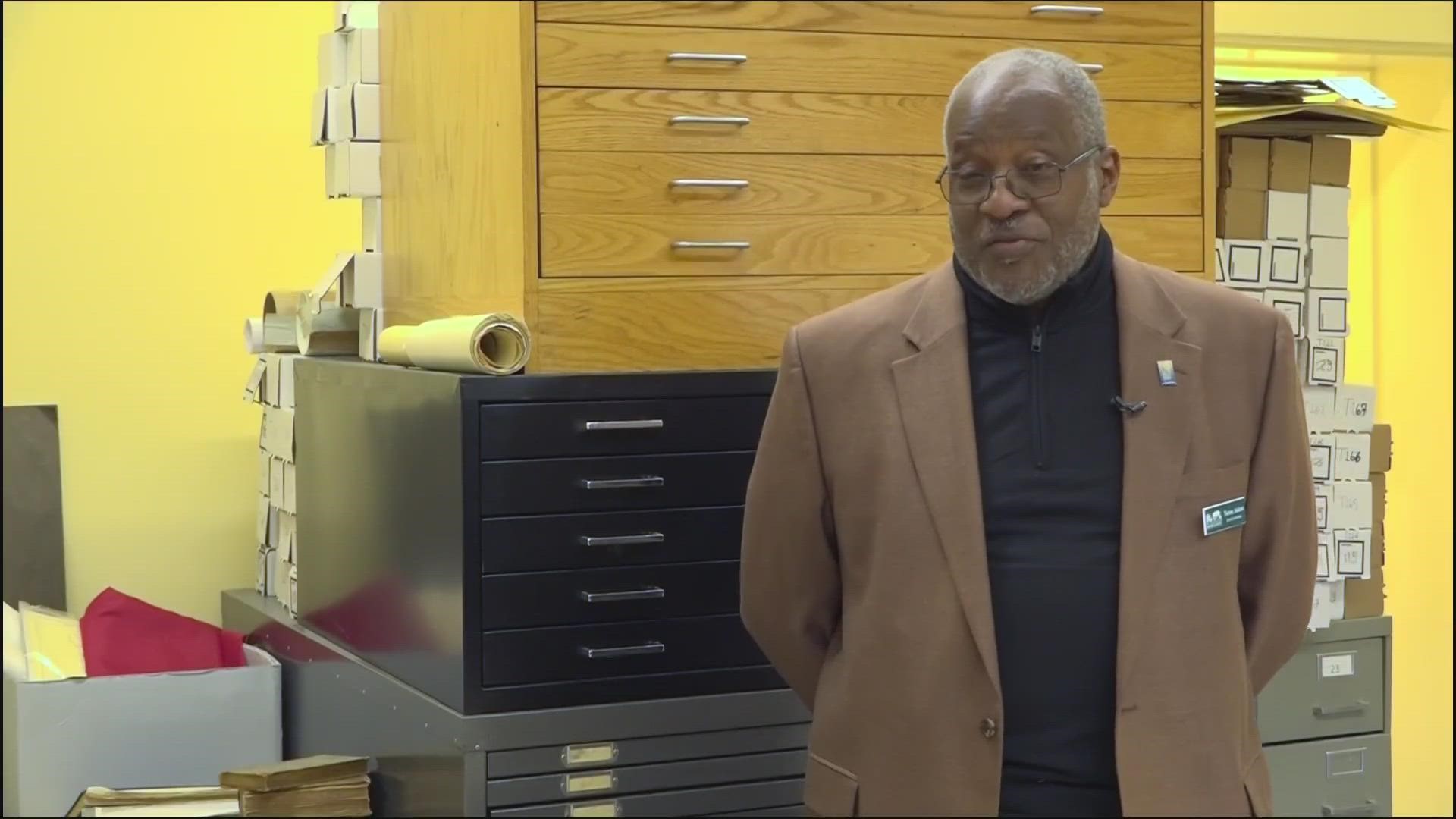ST. AUGUSTINE, Fla. — The new leader of the St. Augustine Historical Society's Board of Trustees, at one time, was not allowed inside one of its buildings because of the color of his skin.
"I was born and raised here in St. Augustine," Thomas Jackson said.
"We had only two black students in the class," he recalled as he flipped through his St. Joseph's Academy year book from 1969.
Jackson has just been elected to a new position.
"I am the first African American president of the St. Augustine Historical Society," he noted. He learned this after asking for a list of the prior presidents of the Board of Trustees which dates to 1883. As far as he knows, he is the first Black person to hold that position.
That society runs the historical research library on Aviles Street. When Jackson was growing up, the building was the public library in town, and it was segregated.
So he and his friends went to the library for Black people in town which was in Lincolnville.


Now, Jackson, is the Board of Trustees President for the St. Augustine Historical Society, which includes oversight of what was once the library for white people.
The St. Augustine Historical Society staff and executive director run the day-to-day operations, and then there is a Board of Trustees "which maintains the overall vision of the society," Jackson explained.
"Anytime you have a story told, based on who is telling it, the story gets told in a certain way," Jackson said.
For example, he pointed to the statues of two St. Augustine men in the library's courtyard. They are statues of Confederate General Kirby Smith and Dr. Alexander Darnes. Much has been shared over the years about Smith, the white man. However, few people know the history of Darnes who was once Smith's father's slave.
"And Dr. Darnes was first Black physician in the state of Florida," Jackson noted.
Jackson told First Coast News he has been "an amateur historian my whole life."
"I’ve seen a lot," his quiet voice said.
Too young to walk in the 1960s Civil Rights marches in St. Augustine, he was a look-out or a "runner" during the marches or sit-ins. He hid in bushes to see who was getting arrested or hurt and reported that information to demonstration organizers.
Jackson remembers when Dr. Martin Luther King was arrested in St. Augustine in 1964.


And he has also been active portraying colonial Black soldiers at Fort Mose State Park.
"There’s so much history I’ve uncovered and been a part of. And other folks have been a part of, and that (history) is not being told. So that’s one of the reasons I feel like, in my position, I can hopefully help."
He says he hopes to "tell the whole story."
Jackson paused and nodded. "Yeah."

